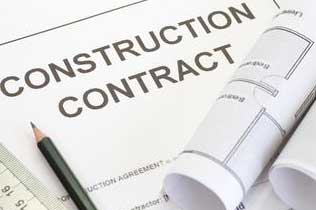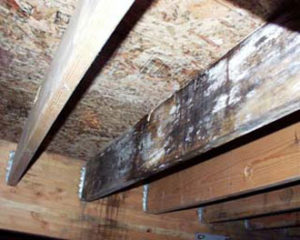
HOMEOWNERS
VS
UNSCRUPULOUS HOME IMPROVEMENT CONTRACTORS
Each year thousands of Hoosier homeowners fall victim to unscrupulous home improvement contractors. Homeowners frequently report shabby workmanship, unfinished work, over billing, building code violations, high pressure sales, and disappearance upon receipt of down payment money. In a culture where so many have grown accustomed to doing business on a handshake, the unsuspecting homeowner is ripe for the picking, thus the beginning of the nightmare of home owners vs bad contractors.
 The Indiana legislature became aware of these complaints in the 1980s and developed several statutes with the specific intention of protecting consumers. These statutes are generally regarded as consumer protection statutes and they impose an obligation on the merchants and/or contractors to deal fairly with their customers or expect to pay for your transgressions. In the realm of home improvement contracts, Indiana law has developed a general deceptive sales act and a more specific home improvement contract act, with work together for the benefit of the consumer. The more general Deceptive Consumer Sales Act lists among its many prohibited acts, any violation of the Indiana Home Improvement Contract Act (HICA). The latter mandates the minimum requirements of an Indiana home improvement contract, and the former sets forth the sanctions for such violations.
The Indiana legislature became aware of these complaints in the 1980s and developed several statutes with the specific intention of protecting consumers. These statutes are generally regarded as consumer protection statutes and they impose an obligation on the merchants and/or contractors to deal fairly with their customers or expect to pay for your transgressions. In the realm of home improvement contracts, Indiana law has developed a general deceptive sales act and a more specific home improvement contract act, with work together for the benefit of the consumer. The more general Deceptive Consumer Sales Act lists among its many prohibited acts, any violation of the Indiana Home Improvement Contract Act (HICA). The latter mandates the minimum requirements of an Indiana home improvement contract, and the former sets forth the sanctions for such violations.
The most updated version of the Indiana Home Improvement Contract Act, which became effective July 1, 2017 contains the following requirements:
(a) A real property improvement supplier shall provide a completed contract to the consumer before it is signed by the consumer. Except as provided in subsection (c) below, and subject to subsection € and section 10.6 of this chapter for contracts entered into after June 30, 2017, the following minimum requirements must be incorporated:
- The Name of the consumer(s), and the address of the property where the work will be performed.
- The name and address of the contractor, and for contracts entered from July 1, 2017 and thereafter, an e-mail address where the consumer can communicate with the contractor by electronic mail. If a separate person, address, phone, or e-mail is designated for consumers to report problems or make inquiries, then the name, telephone number, and e-mail address for the individual to whom problems or inquiries may be directed.
- The date the contract was submitted to the consumer, and any time limitations for the consumer’s acceptance. [Where a contract was procured by either door-to-door or telephone cold calling, the consumer has three days in which to rescind the contract].
- A reasonable detailed description of the home improvements to be completed, or a statement that the specifications of the home improvement project will be supplied to the homeowner at a later date, but prior to the commencement of any work, and notice to the consumer that their separate written approval shall be required before the commencement of any work. If the home improvement project is entered into for damage, loss, or expense that is to be paid, in whole or in part, from insurance proceeds or for which a third party is liable, the description must set forth the specifications to the extent that the damage, loss, or expense is reasonably known by the home improvement supplier. Alternatively, if the home improvement project is entered into for damage, loss, or expense that is to be paid, in whole or in part, from insurance proceeds or for which a third party is liable the description may be satisfied with a statement that the real estate will be restored to the same condition in which the real estate existed before the damage, loss, or expense occurred or a comparable condition.
- If the description required by subdivision (4) does not include the specifications for the real property improvement, a statement that the specifications will be provided to the consumer before any work begins and that the contract is subject to the consumer’s separate written and dated approval of those specifications, before the work will commence.
- The approximate starting and completion date for the project. If the home improvement project is entered into for damage, loss, or expense that is to be paid, in whole or in part, from insurance proceeds or for which a third party is liable, the approximate start and completion dates must be stated to the extent that the damage, loss, or expense is reasonably known by the home improvement supplier. Alternatively, if the home improvement project is entered into for damage, loss, or expense that is to be paid, in whole or in part, from insurance proceeds or for which a third party is liable then the completion date may be expressed in terms of the number of days elapsed from the date when sufficient approval of the insurance carrier authorizes adequate repair or restoration of the property.
- A statement of any contingencies that might delay the start or completion dates. If the home improvement project is entered into for damage, loss, or expense that is to be paid, in whole or in part, from insurance proceeds or for which a third party is liable, the statement of contingencies that might delay the start or completion of the project must be stated to the extent that the damage, loss, or expense is reasonably known by the home improvement supplier.
- The price of the home improvement project. If the home improvement project is entered into for damage, loss, or expense that is to be paid, in whole or in part, from insurance proceeds or for which a third party is liable the contract may express the price in terms of the consumer’s liability for payment after the application of the insurance proceeds or payments from a liable third party.
- Subject to subsections (b) and (c)(8), a statement as to whether any third party, including subcontractors, vendors, or other persons, who are not a party to the contract, will be furnishing or leasing any labor, services, materials, equipment, or machinery to or on behalf of the home improvement contractor in conjunction with the home improvement project. If the home improvement project is entered into for damage, loss, or expense that is to be paid, in whole or in part, from insurance proceeds or for which a third party is liable, the contract must contain a statement that neither the supplier nor any third parties not a member to the home improvement contract, but who otherwise lease or furnish labor, services, materials, equipment, or machinery may initiate or pursue any claim with the insured consumer’s insurance company.
- Signature lines for the home improvement supplier or its agent and each homeowner to sign and a space for each name to be printed either directly below or after the signature.
(b) The contract must be in a form that each consumer who is a party can reasonably read and understand.
(c) If the home improvement project is entered into for damage, loss, or expense that is to be paid, in whole or in part, from insurance proceeds or for which a third party is liable the contract may permit the commencement of work prior to the approval by the insurance carrier, but such election must be in writing, signed by the consumer, and specify the consumer shall only be liable to the extent the contract contains written specifications, and if applicable is approved by the insurance carrier.
(1)If the home improvement project is entered into for damage, loss, or expense that is to be paid, in whole or in part, from insurance proceeds or for which a third party is liable and the project includes one (1) or more exterior improvements, the contract must inform the insured consumer of the insured consumer’s rights under section 10.5(b) of this chapter (I.C. 24-5-11-10.5) by furnishing the consumer with a typed statement in duplicate easily detachable from the home improvement contract that in the event the consumer’s insurance carrier that all or any part of the claim is not covered under the loss provisions of the insurance policy, then the consumer may use the attached form to send notice to the home improvement supplier of their intention to terminate the home improvement contract within three (3) days of the insurance carrier’s notice.
For contracts signed after June 30, 2017 which contain one or more exterior improvements, the following notice must also be included:
[ “You may cancel this contract at any time before midnight on the third business day after you have received written notification from your insurance company that all or any part of the claim or contract is not a covered loss under the insurance policy. See attached notice of cancellation form for any explanation of this right.”]
A boldface “NOTICE OF CANCELLATION” for in duplicate must also be attached to the contract, which is easily detachable, containing the following notice in 10 point type or larger:
“If you are notified by your insurance company that all or any part of the claim or contract is not a covered loss under the insurance policy, you may cancel the contract by mailing or delivering a signed and dated copy of this cancellation notice or any other written notice to (the home improvement supplier, with the address provided thereon) at any time before midnight on the third business day after you have received such notice from your insurance company.
If you cancel the contract, any payments made by you under the contract will be returned to you within ten (10) business days following receipt by (real property improvement supplier) of your cancellation notice, minus any amounts you may owe for work already done by (real property improvement supplier).
I HEREBY CANCEL THIS TRANSACTION
_____________________________________
(DATE)
_____________________________________
(INSURED CONSUMER’S SIGNATURE)]
(2)If the home improvement project is entered into for damage, loss, or expense that is to be paid, in whole or in part, from insurance proceeds or for which a third party is liable, and the home improvement supplier and consumer DO NOT HAVE A PRIOR BUSINESS RELATIONSHIP, then the home improvement supplier may not enter into a contract with an Indiana consumer, unless one of the following apply:
- The supplier resides, is domiciled, or is authorized to do business in Indiana.
- The supplier maintains one (1) or more fixed physical locations within the state of Indiana where the supplier engages in or solicits home improvement contracts with consumers; or
- The supplier has appointed a resident agent in Indiana to receive service of legal process.
(3) For real property improvement contracts executed after June 30, 2017 the contract must inform the consumer that neither the real property improvement supplier nor any third party subcontractor, material man, or equipment lessor, may initiate or pursue a claim with the insured consumer’s insurance company.
(d) The act, while not requiring any particular language be inserted into the real property improvement contract, strictly bars the real property improvement supplier from enforcing any modification to the original contract, unless it is in writing and signed by the consumer.
(e) The act appears to reiterate the requirement that the contract contain a notice to the consumer that neither the real property improvement supplier nor any third-party subcontractor, material man, or equipment lessor, may initiate or pursue a claim with the insured consumer’s insurance company.
(f) A real property improvement contract may not assign any rights of the consumer to any supplier or third parties.
(g) A real property improvement contract must reflect the full amount of the contract price less any discounts offered.
(h) Finally, a real property improvement supplier or third party who recklessly, knowingly, or intentionally impersonates a consumer commits a Class A misdemeanor.
HICA also prohibits the supplier from assigning any rights of the consumer to any supplier or third parties.
- HICA requires the home improvement price be stated in the contract complete with any offered discounts.
- HICA makes it unlawful for any supplier to impersonate a consumer for any purpose, including making contact with the consumer’s insurance company.
These contractual requirements apply to home improvement contracts, rather than commercial contracts. The Indiana legislature has imposed a code of conduct and imposed it upon home improvement suppliers with the aim of leveling the playing field. Law makers reasoned that by imposing these minimum requirements on the home improvement suppliers, the consumer would have better odds of securing a contract with reasonable terms.
The prospect of enforcement is somewhat burdensome on the consumer, and that fact may be by design. When a consumer finds themselves in trouble with a home improvement contract gone bad, their right to sue the home improvement supplier is regulated by a number of legal hurdles. For this reason, it is crucial for the home owner to seek legal representation by an experienced construction law attorney, who has experience with HICA and the Indiana Deceptive Consumer Sales Act in order to insure they secure the protections afforded them by these consumer protection statutes.
The consumer, at the very least, must provide written notice to the home improvement supplier of its violations of the statutes, with proper citations to the statute, and permit a thirty (30) day period within which the supplier may be permitted to submit an offer to cure. Great care must be taken by the consumer, or their counsel, to insure the notice is provided exactly as required under the Indiana Deceptive Consumer Sales Act.
OTHER SUPPLIER VIOLATIONS
While the HICA is listed within the list of potential violations under the Deceptive Consumer Sales Act, it is certainly not the only act proscribed by that body of law. The list is broad, because it is intended to apply to virtually all consumer related sales within the State of Indiana, even those that do not fall into the category of home improvement contracts. Among those acts that often relate to a home improvement act, the Deceptive Consumer Sales Act lists the following as “Deceptive Acts”:
- Failure to obtain a license or permit to conduct the work or service engaged in with a consumer, when the law requires the supplier to hold a license;
- That the supplier claims a repair or replacement of any item is necessitated, when it is not;
- That the supplier claims to have sponsorship, approval, or affiliation, which the supplier does not have;
- That the supplier can complete the project or repair within a period of time, if the supplier knows that it could not reasonably meet the promised completion date;
- Engaging in a replacement or repair that is not authorized.
Perhaps most importantly, it is extremely important for the consumer to take action quickly, as the enforcement provisions within the Deceptive Consumer Sales Act bar the filing of an action for any consumer action where the consumer fails to give written notice to the supplier within the sooner of six (6) months of initial discovery of the deceptive act, or one (1) year following such consumer transaction, or not less than thirty (30) days of any warranty period applicable to the consumer transaction. Then, in addition to the notice requirements described above, the consumer is barred from filing any action more than two (2) years after the occurrence of the deceptive act. With these restrictions sewn into the statute, consumers must take care to act quickly, or they may lose their right to sue under this consumer protection statute.
The consumer’s golden nugget is found in this paragraph, as the importance of these two consumer protection statutes is brought to light. In most consumer contracts, the supplier controls the terms. The print up the standard contracts and submit them to the consumer for inspection and review and the consumer is expected to sign the contract with little or no wrangling over the terms. It is quite common for these contracts to be written in such a way that the home improvement supplier provides a right to recover attorney fees, in the event they are forced to sue the consumer to recover the balance on their contract, while leaving the consumer without any recourse for attorney fees. However, the Deceptive Consumer Sales Act, provides for an award of attorney fees to the prevailing party. While it is a double-edged sword, it does provide the consumer with an opportunity to recover attorney fees, where no such right exists in the contract.
If you are the victim of a home owners vs bad contractors nightmare and you need counsel to assist you in preserving your rights, give us a call today at 317-939-3000 and someone from our staff will be happy to discuss your matter right over the phone with you at no cost.
Robert McNevin, Jr. is a partner with the Indianapolis law firm at the Indy Advocate. His practice is primarily focused on construction and real estate law.










 It is fundamental that sellers are motivated to get the highest price whenever a sale takes place. This is true for almost everything, including real estate. Conversely, buyers want to purchase for the lowest price. Everyone engaged in a
It is fundamental that sellers are motivated to get the highest price whenever a sale takes place. This is true for almost everything, including real estate. Conversely, buyers want to purchase for the lowest price. Everyone engaged in a 
 Homeowners in Indiana are protected from unscrupulous contractors by a consumer protection statute called the Indiana Home Improvement Act. The statute can be found at
Homeowners in Indiana are protected from unscrupulous contractors by a consumer protection statute called the Indiana Home Improvement Act. The statute can be found at 
 Under Indiana law suppliers of labor, materials and equipment have the right, under certain circumstances, to hold and enforce a mechanic lien to insure they are paid for their efforts. Those lien rights can be quite vexing for the property owner, when payment issues arise. In order to avoid the problems associated with mechanic liens, property owners and general contractors may specify in their contracts that the contractors and subcontractors waive their rights to record a mechanic lien. However, such provisions, under Indiana law, are null and void on commercial construction projects pursuant to
Under Indiana law suppliers of labor, materials and equipment have the right, under certain circumstances, to hold and enforce a mechanic lien to insure they are paid for their efforts. Those lien rights can be quite vexing for the property owner, when payment issues arise. In order to avoid the problems associated with mechanic liens, property owners and general contractors may specify in their contracts that the contractors and subcontractors waive their rights to record a mechanic lien. However, such provisions, under Indiana law, are null and void on commercial construction projects pursuant to 





